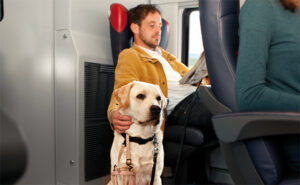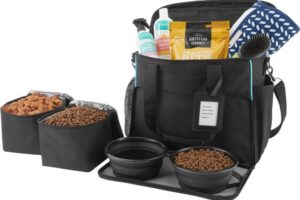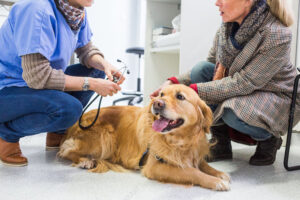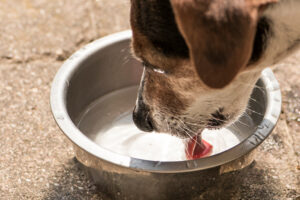Selecting a dog for your family is an exciting and significant decision, but it also requires a lot of maintenance. Selecting the appropriate dog breed is very crucial.
Table of Contents
Introduction
The unique characteristics and needs of each breed of dog can significantly impact your family’s experience with having a dog around. You may choose the best dog breeds for your family with the help of these eight helpful ideas from this article. Let’s investigate them.
Consider Your Lifestyle and Living Space

Consider your family’s lifestyle and where you stay before searching for the ideal canine. Consider factors like your daily schedule, the size of your home, if you have a yard and your level of activity. Those who enjoy outdoor activities may find that energetic dog breeds are a suitable fit for them. They will keep you in both physical and mental shape. However, apartment-friendly dogs might be a better option if you like a quiet, peaceful life.
Dog Size Matters

When selecting a dog breed, size is a crucial consideration. Larger breeds like German shepherds, Rottweilers, Labrador Retrievers, and Golden Retrievers are ideal for vast spaces, while smaller breeds like Shih Tzus, Dachshunds, and Pugs are good for households with limited space. You can easily find pug breeders near me. For people who lead calm and placid lives, there are perfect dog breeds. For example, the finest breed for people who prioritize peace of mind is a dog like a Bulldog, Basset Hound, Chihuahua, etc.
Dog’s Behaviour and Energy Level

Every dog is different in its energy and mannerisms. A few are incredibly gregarious, while others are more guarded and quiet. Therefore, consider the personalities and energy levels of your family while choosing a dog. You may enjoy Labrador and Golden Retriever dogs if you’re an active group. Consider breeds like the basset hound, pug, or shih tzu for families looking for a gentle and peaceful canine companion. Select a dog that aligns with your family’s vibe.
Allergies and Shedding

Consider your family’s allergies before getting a dog. Certain dogs are hypoallergenic, which means they produce fewer allergies. Allergy sufferers might consider Shih Tzu, Maltese, Bichon Frise, and toy Poodle breeders. To prevent matting and shredding problems, dogs with long, thick fur also require frequent brushing. Before taking a dog home, bear this in mind.
Lifespan and Commitment

Dogs live varying lifetimes, ranging from 10 to 15 years. Getting a dog is a great decision, but it requires a commitment that lasts at least ten years. You need to be prepared for things like socializing, training, medical attention, and grooming. In addition to being unfair to the dog, handling any of them poorly will negatively impact your mental well-being. Before getting a furry friend, give it some thought.
Training and Socialization
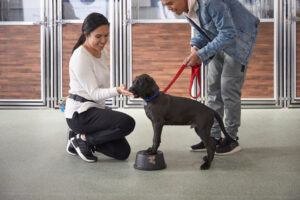
Give training and socialization to your dog if it is bred; otherwise, it may develop behavioral issues. Almost all dogs require socialization since that is how they are wired. Because dogs differ greatly in their ability to learn, you can also find it more difficult to train a certain breed than others. Giving your dogs some tasty goodies that function as positive reinforcement can make training sessions more enjoyable.
Note: There might be affiliate links mentioned here. We may receive a commission if you purchase a product through an affiliate link. There is no additional charge for you. Please do your own research before making any online purchases.
Learn about Breed Specific Health Concerns

Certain health issues can affect different dog breeds. Check for common health problems in dogs before choosing one, and be prepared to deal with them. Allergies, heart issues, and hip dysplasia are typical problems. Frequent veterinary appointments and providing quality care for dogs contribute to their long-term health and happiness.
Exercise and Activity Needs

The amount of exercise and activity required by different breeds varies. Dogs that are similar to Labrador retrievers, German Shepherds, Rottweilers, and Dobermans require a lot of playtime, walks, and training to be happy. Conversely, tiny breeds could get adequate exercise from simply leaping on the furniture. Simply said, choose a dog that matches the energy level of your family and the amount of time you can dedicate to exercise.
How to Choose the Right Dog for Your Family
- Size

Size is something you should think about first when selecting a dog. A smaller breed like a Chihuahua or Toy Poodle can be something to think about if you live in a small apartment. However, a larger breed like a Labrador or Golden Retriever can be a better option if you have plenty of room for your dog to run around and stay active. Before choosing, consider your lifestyle and the amount of room you have for a new furry pet.
- Breed Temperament

There are hundreds of dog breeds to pick from, so each one is unique, so it’s crucial to do your homework before deciding. While some dogs are designed for protection or hunting, other canines are bred for socialization. The ideal breed to choose if you have little children is one with a calm, sensitive temperament.
- Budget

You should also consider how much money you are willing to spend on your new pet. The cost of purebred dogs is usually more than that of mixed breeds, and over time, some breeds may require more maintenance than others. Make sure you do your homework and ascertain the cost of dog care for the breed you are interested in before deciding on a final choice.
- Energy or Activity Level
Your new furry family member’s general level of energy or activity should also be taken into account. While some dogs thrive on long walks around the block or lazy days at home, others have different activity requirements. A high-energy dog that can keep up with you is generally what you’ll want if you’re an active person who enjoys running or hiking.
- Allergies

Before introducing a new puppy into the home, it’s crucial to take allergies in your family into account. Certain breeds are better choices for allergy sufferers since they are believed to produce less dander and shed less. Breeds like Bichon Frises, Schnauzers, and Poodles are among them.
- Age

Age is another crucial factor to take into account when selecting a dog. More care is needed for puppies than for older dogs, including vaccinations, potty training, and typically puppy school. You could be better off with an adult or senior and best guard dog if you’re not ready for the additional responsibilities that come with owning a puppy. Remember that senior pets could have unique dog health problems that need further attention and care.
Conclusion
It’s important to take your time while choosing the ideal dog for your household. Consider factors such as lifestyle choices, places of residence, dog personality types you enjoy, health issues, and allergies. This will enable you to make wise decisions. Keep in mind that each dog is unique, so be prepared to adapt and provide your new pet with the love and care they require. These pointers should hopefully help you locate the ideal canine companion for your family, providing years of happiness.








 Because their mothers groom their young, kittens are more receptive to grooming because it seems normal to them. Your kitten becomes accustomed to being handled and held as a result. An adult cat can be trained with more handling, but if at all possible, begin with a young cat.
Because their mothers groom their young, kittens are more receptive to grooming because it seems normal to them. Your kitten becomes accustomed to being handled and held as a result. An adult cat can be trained with more handling, but if at all possible, begin with a young cat.
















































































